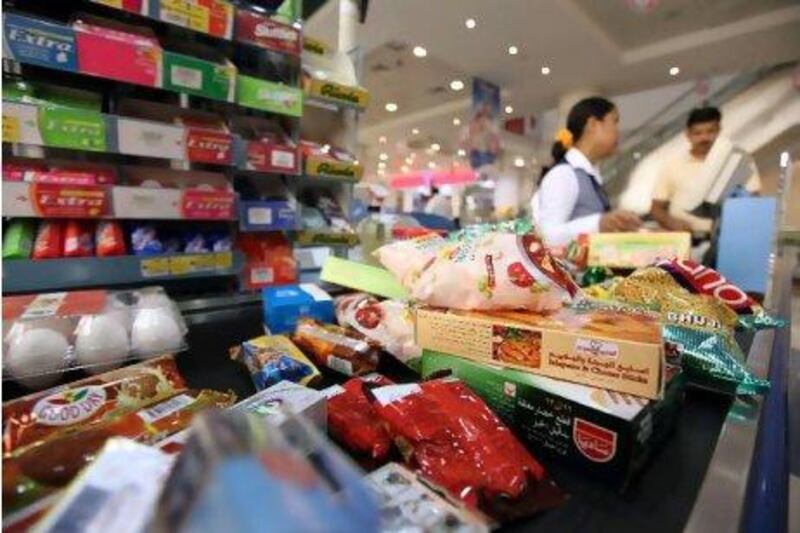Supermarket bosses have revealed how they will maintain profits while paying for the Government's price control scheme - the extra cost will be classified as corporate giving.
To combat inflation across the UAE the Government has asked big chains to subsidise the cost of about 400 products to the public in a scheme that runs until the end of the year.
Some of the retailers have agreed to lower prices to the same level as the wholesale cost, while others will cut prices by up to half, the Ministry of Economy said.
One example is Al Ain Co-operative, which has agreed to offer 45 food items at the price it pays suppliers, forgoing margins of between 5 per cent and 20 per cent depending on whether the item is an international product or one of its own. The impact on profits will be met by its corporate social responsibility (CSR) fund.
"The money will be taken from an amount we use each year for social work," said Husam Abdeen, a purchase manager with Al Ain Co-op. "We are not worried about the cost [of the campaign] actually, because we look to spend money each year to give to the community and this will come from that."
Mr Abdeen said the cost to the company of the price control campaign would be Dh100,000 (US$10,262), which would otherwise have gone to the local community. CSR funds have traditionally been mostly spent on schools and community support schemes.
"Philanthropic activities [in the UAE] are mostly found to be focused on supporting education, economic development and health care," said Habiba al Marashi, the chief executive of Arabia CSR Network, an organisation that works with companies throughout the Emirates to engage their support for sustainable development projects. "Companies are employing a mixed approach of implementing a wide range of initiatives, those that cover the entire spectrum of marketplace, workplace, community and environment.
"Today, companies in the Middle East are waking up to the fact that commitment to CSR is essential for future success in today's complex economy," she said.
"The UAE has begun to redefine its development objectives to create an enabling environment for sustainable development.
And since business is reliant on several external factors such as market reputation, stakeholder pressures, compliance to environmental standards, etc., there will always remain a necessity to exercise social responsibility."
Lulu Hypermarket announced it, too, would use CSR to pay for the price control scheme.
Yusuffali Ma, the managing director of Lulu Hypermarket chain said: "Though we are operating in a very competitive marketplace and there is already heavy pressure on the margins, we have always believed in giving back to community and this is one such initiative and we are not calculating losses here."
V Nandakumar, a spokesman for the supermarket, said Lulu had agreed to enter 40 items from its shelves for the Government's price scheme. "Some of them we have fixed at cost and some will be reduced by different amounts. It is all part of our CSR fund," he said. "We have not estimated the cost; we are not going to do it indefinitely."
Lulu sponsors a number of events each year in the community and was the "golden sponsor" for the Fujairah Shopping Festival.
Expectations of rising food prices prompted the Government to take action. But some analysts have criticised the plan as being short-sighted and not addressing the root of the problem, which they say is that the UAE imports a vast majority of its food, estimated to be 85 per cent of consumption.
"What they are doing, it maybe pleases customers at the checkout but it is just not a sustainable approach," said Nicholas Lodge, the managing partner of Clarity, a new financial and agriculture consultancy in Abu Dhabi. "The UAE needs to look at alternative methods of producing food here; this problem is not going to go away with growing population demographics."
The Government's scheme is also likely to affect smaller shops, which face an estimated 30 per cent drop in profits from selling some products at a loss and do not have CSR funds to tap. The alternative for small retailers is to opt out of the scheme and risk losing customers to competitors that are cutting their prices.





